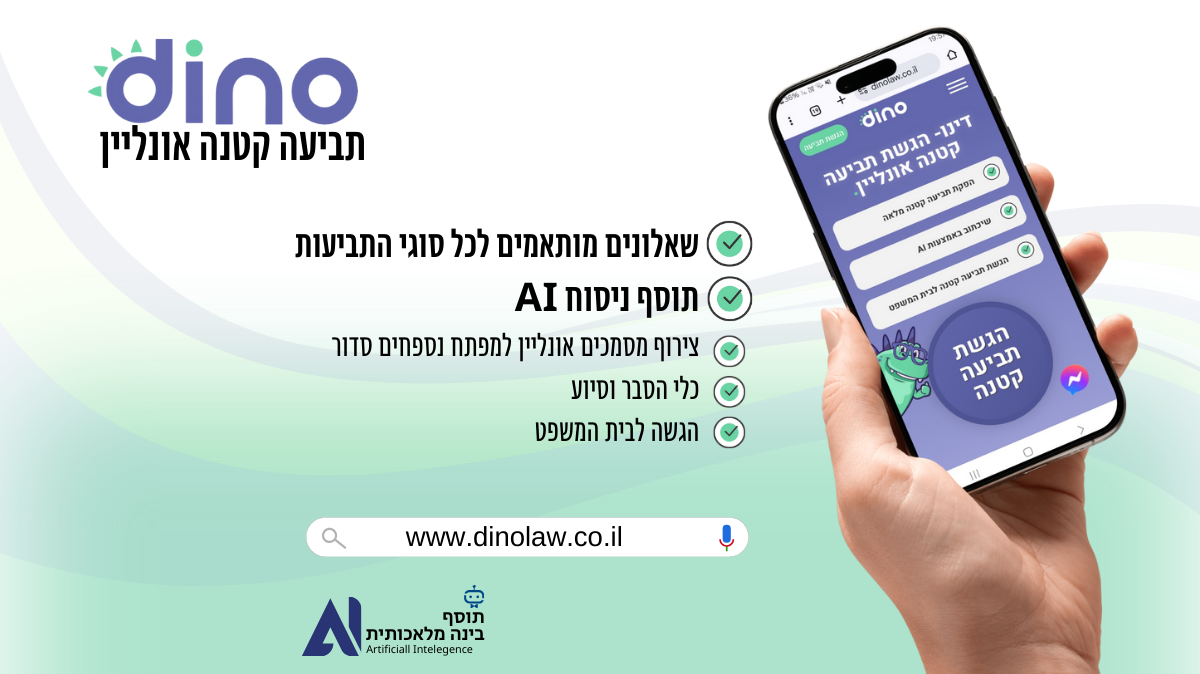Questions and Answers – Unsure where to begin? We have compiled the most common questions for your convenience. This page will continue to be updated over time; however, more comprehensive information can be found on our articles page.
- Furniture assembled at the consumer’s home;
- Goods manufactured specifically for the consumer according to special measurements or requirements;
- Goods that by law cannot be returned;
- Food products;
- Medicines and dietary supplements;
- Perishable goods – products that, from the moment they are supplied to the customer, cannot be reused or supplied to another, or products whose value will decrease (or spoil) by the time they are returned to the business;
- Information as defined in the Computers Law (“data, signs, concepts or instructions, except for software, expressed in computer-readable language, and stored in a computer or other storage medium, provided that the data, signs, concepts or instructions are not intended for use in a support computer only”);
- Goods that can be recorded, copied or duplicated, where the consumer has opened their original packaging (such as books);
- Underwear, including swimwear;
- Liquefied petroleum gas (cylinder or gas tank);
- Jewelry priced above 3,000 NIS, excluding watches;
- Hospitality, travel, leisure and entertainment services performed entirely outside of Israel;
- Where the consumer requested delivery of a product more than 6 months from the date of the transaction, the transaction cannot be cancelled after the products have been supplied.
- Transactions whose consideration was paid using gift certificates, gift vouchers or rechargeable magnetic cards.
- Unpackaged tableware.
How to File a Small Claims Case. We have compiled all you need to know about the process – Filing a Small Claims Case.
This amendment, effective September 2018, prohibits smoking in all educational institutions, including higher education institutions and post-secondary institutions with students over 18 (including courtyards and student residences), kindergartens, nurseries, and daycare centers (including courtyards). The smoking ban extends to the premises and an additional 10-meter radius from entrances and exits (excluding residential buildings within this radius). The 10-meter restriction does not apply to playgrounds.
In higher education institutions and post-secondary institutions with students over 18, the institution’s administration may designate a separate smoking room (excluding administrative or faculty offices), provided the room is adequately ventilated and does not cause a nuisance to other areas.
First, take a deep breath. Having done so:
Arrive appropriately dressed (no shorts and flip-flops). Bring photo identification (for entry), a hard copy of the writ of summons and its exhibits, and arrive at least fifteen minutes before the scheduled hearing time; have coffee in the cafeteria, observe the courtroom, absorb the atmosphere, and alleviate tension.
From the moment you enter the courtroom (and ideally, as a way of life), conduct yourselves respectfully towards all present; from the defendant, through the court clerk, to the judge. The assumption that whoever shouts loudest is right does not hold true in court.
All supporting documentation upon which the claimant intends to rely must be attached to the small claims lawsuit. For example, in a small claims action for breach of a lease agreement, it is appropriate to attach a copy of the signed agreement and any document substantiating the alleged breach (such as text messages, a dishonored check, a recording of a conversation, etc.).
He prefers to maintain privacy on this matter. However, attempts to contact him are always welcome.
To reschedule a hearing, any party must submit a written request specifying the reasons for the requested change and attaching any relevant documents.
For example, if a plaintiff/defendant has pre-planned international travel coinciding with the scheduled hearing, this must be stated in the written request, supported by an affidavit and accompanying documentation (e.g., flight tickets and booking confirmation in the applicant’s name).
Yes, it is possible to file a small claims lawsuit in civil proceedings. Regarding the advantages and disadvantages of filing a small claims lawsuit versus a “regular” civil lawsuit, please see our article Filing a Small Claims Lawsuit – Everything You Need to Know.
Yes. (For example, in cases of bodily injury/vehicle damage caused by a road hazard; a lawsuit against the Israel Police for wrongful imprisonment; and more.) However, it should be noted that in certain cases, the Small Claims Court lacks jurisdiction to hear a small claims lawsuit against the state, and jurisdiction is vested in specialized courts.
Examples of cases where the Small Claims Court lacks jurisdiction to hear a small claims lawsuit against the state include: a claim exceeding the amount granted to Small Claims Courts; a labor law claim under the Labor Court Law, 5729-1969; a claim on matters where jurisdiction is vested in the Court for Administrative Claims within the framework of a petition/administrative claim under the Courts for Administrative Matters Law, 5760-2000 (e.g., business licensing; environmental protection; freedom of information; decisions of a planning and building committee; and more).
Our system employs robust security measures. Beyond standard website and system security protocols, we’ve implemented an additional layer of protection: a unique, complex password for each user, known only to them. Users are solely responsible for maintaining the confidentiality of their password and preventing unauthorized access, whether direct or indirect.
Furthermore, payments are processed through a secure page provided by our payment processor, adhering to the advanced PCI security standard. Leading credit card companies (Visa and Isracard) utilize an additional security mechanism (3D-Secure), sending a temporary, one-time code to the user’s mobile device or email address to verify their identity. For further details, please see our Privacy Policy.
